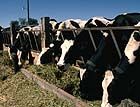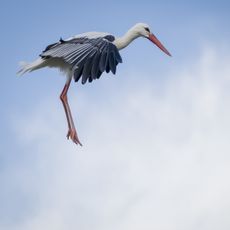New Foot and Mouth case suspected
A Temporary Control Zone has been constructed around a farm in Kent


Chief vet Debby Reynolds has placed a 3km Temporary Control Zone around a farm in Kent where animals are suspected to be carrying the Foot and Mouth virus, although she has not revealed the exact location of the farm.
Reynolds is keen to stress that there was a suspected case last week, on a farm in Dorking, that turned out to be a false alarm, and she hopes that this will be the same again.
The Department for Environment, Food and Rural Affairs (Defra) has said in a statement that such a precaution is ?not unusual?, and that ?We?re being ultra-cautious at this point.? Anyone concerned about their animals, or Foot and Mouth in general, is asked to call the Defra helpline, on 08459 33 55 77.
The Country Land and Business Association (CLA) is continuing to urge farmers to exercise extreme vigilance and good biosecurity measures at this time.
Sign up for the Country Life Newsletter
Exquisite houses, the beauty of Nature, and how to get the most from your life, straight to your inbox.
Country Life is unlike any other magazine: the only glossy weekly on the newsstand and the only magazine that has been guest-edited by HRH The King not once, but twice. It is a celebration of modern rural life and all its diverse joys and pleasures — that was first published in Queen Victoria's Diamond Jubilee year. Our eclectic mixture of witty and informative content — from the most up-to-date property news and commentary and a coveted glimpse inside some of the UK's best houses and gardens, to gardening, the arts and interior design, written by experts in their field — still cannot be found in print or online, anywhere else.
-
 A well-connected rural playground with 23 acres on the edge of the South Downs National Park
A well-connected rural playground with 23 acres on the edge of the South Downs National ParkOld House Farm is an impressive family home with a wealth of amenities that would inspire any rural passion.
By Arabella Youens Published
-
 The UK gets its first ‘European stork village’ — and it's in West Sussex
The UK gets its first ‘European stork village’ — and it's in West SussexAlthough the mortality rate among white storks can be up to 90%, the future looks rosy for breeding pairs in southern England.
By Rosie Paterson Published
